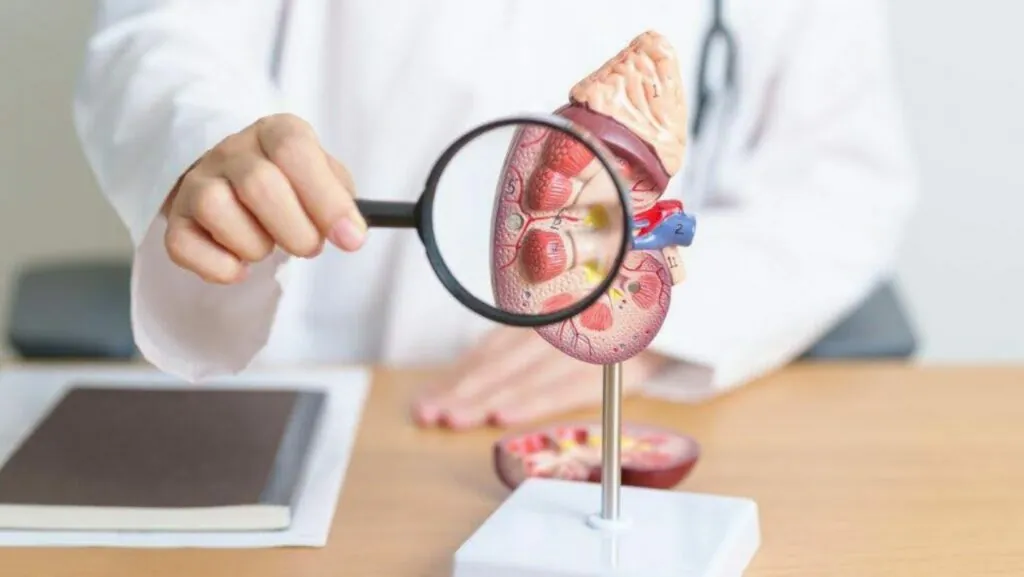Table of Contents
ToggleLife today is a very fast one. People are seen neglecting rest and recovery in order to make time for family, focus on work, and deal with financial responsibilities.
This continuous stress can lead to the hyperactivity of the adrenal glands, triggering what is now called as adrenal fatigue. But early detection of this illness can have a great impact.
In this article, we will give you a detailed understanding of the roots of adrenal fatigue, the indications that may be present initially. We will also guide you with the steps that are to be taken in the treatment process before it turns into something more serious.
Common Causes for Adrenal Fatigue
The symptoms of adrenal fatigue are often felt as the first step to understanding what it is about. The adrenal glands are little glands that sit on top of the kidneys and release cortisol and adrenaline hormones to help the body deal with stress.
However, when the body has to get through stress every day, the glands might turn off their function and imbalance one’s energy, mood, and health.
Moreover, emotional stress from work or daily life, not getting enough sleep, having a bad diet, and constant illnesses are the usual sources of stress to the adrenal system.
Besides, the consequences of overexertion, contamination, and excessive use of stimulants such as coffee and energy drinks can further impact the condition. This stress that keeps on aggravating over months or years exhausts the adrenal glands, resulting in persistent fatigue.
How to Recognize Adrenal Fatigue Early: Key Signs and Symptoms
Identifying the symptoms early allows you to start Adrenal Fatigue Treatment before things get out of control.
Physical Symptoms
One of the first signals is chronic fatigue that despite sleeping however many hours, cannot be cured. People with adrenal fatigue wake up feeling tired, experience energy lows in the middle of the day, and most noticeably in the afternoon.
Dizziness when standing, persistent headaches, and aching muscles are also common. Cravings for sweet or salty foods can arise as the body tries to balance sodium and blood sugar levels.
Immune deficiency also results in the fact that these individuals will get infections or catch colds more easily and will take longer to recover.

Emotional and Mental Symptoms
Adrenal fatigue also affects the brain. Symptoms like brain fog, lack of focus, and short-term memory issues become common.
Anxiety, irritability, or mild depression is mostly felt by most individuals. Simple tasks previously may now seem overwhelming, with more frustration and emotional depletion.
Hormonal and Metabolic Symptoms
Many individuals with adrenal fatigue gain weight, especially in the middle, and are unable to lose it. Women may have abnormal periods or more severe PMS symptoms.
Both men and women usually feel low libido. Blood sugar swings cause shakiness, irritability, or lightheadedness between meals, which means metabolic imbalance.
Behavioral Red Flags
To combat low energy, the majority turn to caffeine or energy drinks, overloading the adrenals further.
Eventually, withdrawal from society becomes the standard as even ordinary contact feels exhausting. Simple daily tasks become put off or skipped altogether due to a lack of motivation and exhaustion.
When to See a Doctor?
Chronic symptoms call for a doctor’s care. Most dismiss these problems as mere fatigue, but persisting symptoms for weeks or months deserve a professional assessment. Physicians can perform certain tests to determine adrenal function and eliminate more severe ailments.
Testing could involve salivary cortisol panels at various times of day, cortisol blood tests, DHEA, ACTH, thyroid hormones, blood glucose levels, and electrolyte panels. These tests provide a complete understanding of your adrenals and guide the appropriate treatment plan.
How to Start Treatment Early and Naturally?
On diagnosis, specific medical treatment is the key to deal with adrenal fatigue. Listed below are the steps to start treatment early and naturally.
Medical Evaluation and Lab Testing
Comprehensive lab testing is always first. A 24-hour salivary cortisol test shows the function of cortisol during the day.
Blood work checks cortisol, ACTH, DHEA-S, thyroid hormones, insulin, and very important electrolytes like sodium and potassium. All these findings allow a very specific and individualized treatment plan to be created.
Targeted Medical Supplementation
Following viewing your labs, your doctor may suggest certain supplements. Vitamin C supports adrenal hormone production, and magnesium glycinate calms muscles, induces sleep, and resolves stress.
B-complex vitamins, especially B5 and B6, are directly involved in adrenal hormone synthesis. Omega-3 fatty acids may possibly reduce inflammation. Infrequently, if lab results are low and validate this, DHEA or pregnenolone might be prescribed, once more only via medical attention.
Recovery is also assisted by adaptogenic herbs like ashwagandha and rhodiola, though these should be consumed under professional advice as well.
Prescription Drugs (Only If Necessary and Severe Conditions)
For more extensive adrenal dysfunction or adrenal insufficiency, prescription medication may be necessary. Temporarily supplementing insufficient cortisol with low-dose hydrocortisone (Cortef) can give the adrenal glands a chance to heal.
Fludrocortisone may be added in some cases to help stabilize blood pressure and sodium levels. These medications must be watched closely to avoid side effects and addiction.
IV Nutrient Therapy
In certain cases, IV therapy may be recommended for more rapid nutrient replacement. Drips of high-dose vitamin C, magnesium injections, and B-complex IV treatments have a tendency to reestablish the body’s equilibrium and vigor at a faster rate than oral supplements alone. These treatments are commonly performed in medical spas under professional care.
Professional Monitoring and Follow-Up
Recovery from adrenal exhaustion requires time. Regular follow-ups every few months enable your healthcare provider to monitor progress, fine-tune dosages, and alter treatment as your body recuperates. Continuous monitoring prevents both safety and efficacy issues during recovery.
Integrative Psychological Support (Medical)
Because stress is often the root issue, emotional support is an important part of recovery. Your doctor can provide cognitive behavior therapy (CBT) so that you can gain greater control over anxiety and detrimental thought habits.
Biofeedback therapy will help you learn how to control physical stress reactions, and medical hypnotherapy will help you sleep better and feel less anxious. Addressing emotional and physical stress leads to overall recovery.
Conclusion
Adrenal fatigue can quietly destroy your health if not treated. But recognizing the first signs allows you to receive proper care and initiate effective treatment on time, without allowing serious impairment.
Thanks to thorough examination, medical supervision, and focused treatment, recovery is very likely. If you observe these symptoms in yourself, take action and consult a healthcare professional today.




